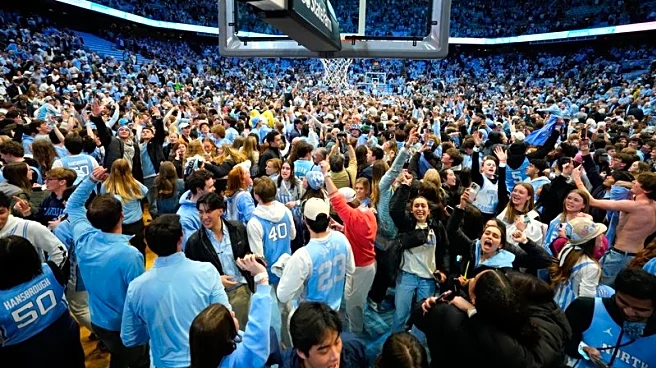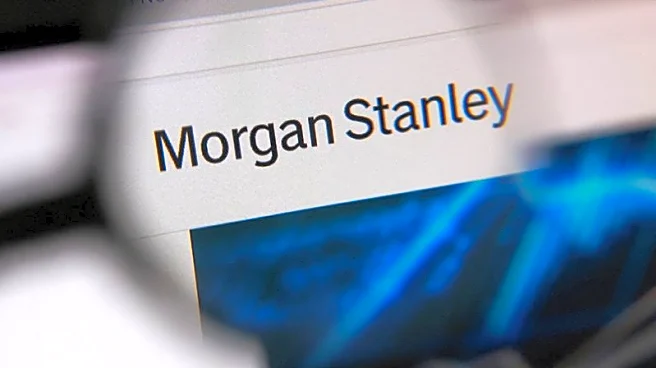
AUSTIN, Texas — Clank. Shank. Flag.
From the most reductive standpoint possible, those three simple words encapsulate the three areas in which the Texas Longhorns most need to improve on special teams,
according to coordinator Jeff Banks on Tuesday, after finishing No. 117 nationally in special teams SP+ last season.
“I think we just see areas of improvement for this season being net punting, field-goal percentage and penalties. I think those are the three things after diving back into it and looking at it and being removed from the game and the emotion of some of those situations,” Banks said.
Texas looked to the NCAA transfer portal to solve the issues in the kicking game, landing Utah transfer Jack Bouwmeester in the winter window and Texas State transfer Mason Shipley in the spring window, prompting the eventual spring transfers of punter Michael Kern and place-kicker Bert Auburn.
“Obviously, we’ve acquired talent at both of those positions and we hope that’ll help improve both those areas — I think it will. A lot of maturity by both kids that are coming in as transfers, and so we’re excited about them,” Banks said.
A ProKick Australia product who signed with Michigan State in 2019, Bouwmeester is certainly mature at 26 years old and with 154 career punts over the last three seasons at Utah, including averaging 45.5 yards per punt in 2023 for the Utes to lead the Pac-12 and earn recognition as a Ray Guy Award semifinalist.
At Peach Bowl Media Day, Banks noted that Bouwmeester transferred because he wanted to hone his pocket-punting skills, an opportunity the Aussie will have at Texas since the Longhorns don’t employ the rugby-style punts used by Utah and other programs around the country, particularly with punters like Bouwmeester who have backgrounds in Aussie Rules football.
The skills that will translate from Utah to Texas are Bouwmeester’s directional punting and ability to deaden the ball near the goal line.
“When you look at some of the specialty punts that he has the ability to do, pin people inside the five, inside the 10-yard line, the hang time, we’re super excited to have him join the team,” Texas head coach Steve Sarkisian said in December.
In 2024, as Kern battled an ankle injury as a freshman, Banks tried to simplify the punting process for him as a function of his youth.
“It’s not necessarily talent or that Mike was injured. It was that he was a freshman. No matter what the position is, you don’t want to put all this stuff on a freshman when we had a really, really good team around him — it was like, let him just do his job, and everyone else can do theirs,” Banks said.
Regardless of the specific compounding factors for Kern, he only averaged 41.6 yards per punt and 38.1 net yards per punt compared to Bouwmeester, who averaged 44.7 yards per punt and 40.3 net yards per punt.
And while Banks will emphasize net yards per punt this season for the Longhorns, Bouwmeester’s punt coverage unit let him down in 2024 by allowing 178 punt return yards, tied for 111th nationally, numbers cratered by a 76-yard punt return touchdown by Colorado.
Bouwmeester didn’t hit that punt particularly well, as it traveled just 41 yards, but the coverage unit allowed Buffaloes return man LaJohntay Webster to get vertical immediately on the way to a straight-line touchdown that featured Bouwmeester getting de-cleated as its final indignity.
After Texas allowed 122 punt return yards last season, tied for 80th nationally, Banks will look towards his own coverage unit to bolster Bouwmeester’s net punting efforts in 2025.
The desire to upgrade the place-kicking situation didn’t become apparent until Shipley committed in late April after visiting Oklahoma, prompting Auburn’s departure.
In assessing potential transfer portal targets at place kicker, Banks looked for three things — a proven track record of making kicks at a high percentage, the leg talent to hit from distance, and the mental makeup to hit pressure kicks.
Auburn’s accuracy decreased sharply in 2024 after hitting 82 percent of his kicks over his first two seasons as the starter, dropping to 64 percent. Over two full seasons as PK1 at Texas State, Shipley connected on 88.2 percent of his kicks, making all 15 in 2023.
A larger differentiating factor was the gap in leg strength between Auburn and Shipley.
“I look at leg talent and the ability to make kicks between that 45-yard and 55-yard range n— we knew we were gonna struggle with that consistency because that was just something that wasn’t the strength of Bert’s,” Banks said.
Auburn was able to minimize those deficiencies in 2023 by hitting 9-of-12 kicks from 40 to 49 yards and making 2-of-4 from 50-plus yards, including a career long of 54 yards against Texas Tech, his fourth straight game with a field goal of 49 or more yards.
But in 2024, the long-range accuracy for Auburn dissolved as he went 6-for-14 (43.9 percent) from 40-plus yards.
Shipley arrived on the Forty Acres 3-for-4 (75 percent) from beyond 50 yards with a career long of 60 yards and 8-for-9 (88.9 percent) from between 40 and 49 yards.
As Auburn lost confidence in his ability to hit from distance, he also folded under pressure.
“Being a high-level kicker, not only this institution, but in high-level college football, playoffs, and then in the NFL, you’ve got to make pressure kicks, and, unfortunately, where Bert struggled the most was making those kicks,” Banks said.
The pressure-induced meltdown that ended Auburn’s Texas career came in the Peach Bowl against Arizona State when he missed two go-ahead field goals in the final 1:39, the first from 48 yards and the second from 38 yards that hit the left upright as time expired.
@barrettsallee Texas K Bert Auburn doinks potential game-winning field goal off the upright against Arizona State in the Peach Bowl quarterfinal #football #sports #fyp #texas
♬ Wander On - Jeddy Knox
Now Banks has shifted his trust to Shipley in a year with high stakes for the Longhorns as national-championship contenders.
“Mason’s got a great disposition — he’s just a mature kid, really a man, that has a very good demeanor about him, and we’ll learn more about him as we go through training camp,” Banks said.
The Texas special teams coordinator made sure to emphasize that Shipley and senior Will Stone, a kickoff specialist until handling the place-kicking duties in the Cotton Bowl loss to Ohio State, will compete during preseason camp since Shipley didn’t arrive until the summer.
“I think Will’s a lot better than he was a year ago, just from going through all of this and going through the end of the season the way he did — he stepped up in that Ohio State game and did a nice job making his PATs and kicking off very well for us, so we feel great because we’ve got two guys that we feel like have that leg strength and that leg talent and that have some experience that can put us at a better position than we were last year,” Banks said.
But improving in the kicking game isn’t enough to fix the issues plaguing the Texas special teams last year — 17 penalties in that phase contributed mightily to the issues.
“The penalty piece is coaching. We pride ourselves on fundamentals and working on individual stuff, Sark gives us great time to do that,” Banks said.
“In some organizations they don’t, but our head coach believes in it and we drill it. So that was a little disappointing to see us create so many penalties that we haven’t in the past to take away some big returns.”
Cornerback Warren Roberson, a core special teams player who finished the season with the second-most snaps in that phase, also committed five penalties. Linebacker Liona Lefau, the leader in special teams snaps, committed two of his own. And departed tight end Amari Niblack, now at Texas A&M, was benched early in the season after getting flagged for two penalties on special teams. Offensive lineman Malik Agbo, who transferred to West Virginia during the spring window, also committed two penalties.
So the Longhorns need to get more clean football from core special teams players. Speed is still the most important attribute for Banks as he evaluates players for those units, but trust ranks a close second.
“Are you the guy that’s going to push away when the returner passes you or are you going to keep grabbing the guy and holding him and creating that penalty, right?” Banks asked.
In 2025, Banks needs to do a better job of assessing that particular skill while ensuring that the Bouwmeester and Shipley execute at high enough levels to provide Texas an advantage on special teams instead of the disadvantage that often existed last year — the ability to get those things right is a big reason why Banks will make $1.2 million.
More from burntorangenation.com:
- Former Texas silent commit Keawe Brown releases statement on re-opening recruitment
- Deep, talented Texas RB room seeks elite status
- Sophomore Eszter Meri takes women’s tennis singles gold at FISU World University Games
- Longhorns Daily News: What QB will Texas football face when they play Ohio State?
- Steve Sarkisian updates the progress of Texas freshman WR Michael Terry
- Texas 2025 MLB Draft tracker: Grayson Boles signs with the Kansas City Royals
- How Arch Manning can bolster the Texas run game











